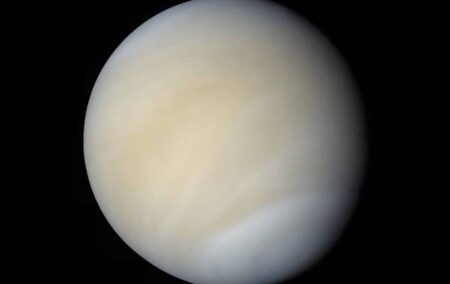Scientists believe that they may have discovered recent evidence of active volcanoes on Venus, Earth’s closest planetary neighbour.
Findings were published this week in the journal, Science.
Scientists studied images of Venus’s surface captured by the space probe, Magellan, which had visited Venus in the early 1990s. The objective of the Magellan mission was to map as much of Venus’s surface as possible. Because of Venus’s thick opaque atmosphere, this was done using radar.
New analysis of the images seems to have identified a volcanic vent near the planet’s equator which changed size and shape significantly over a period of about eight months.
Scientists believe that this means that Venus is a relatively active world, in geological terms, with volcanic eruptions occurring with the same frequency as on Earth.
Plans are currently in place to send another spacecraft to map Venus. The mission, the Venus Emissivity, Radio Science, InSAR, Topography, and Spectroscopy (or VERITAS) mission is currently scheduled to be launched in 2031 and will provide more insights into the planet.
If Venus is confirmed as having active volcanoes, it will join Earth and Io, a moon of Jupiter, as the only bodies in the solar system to have confirmed active vulcanism.
[Photo: Mattias Malmer/NASA/JPL]

